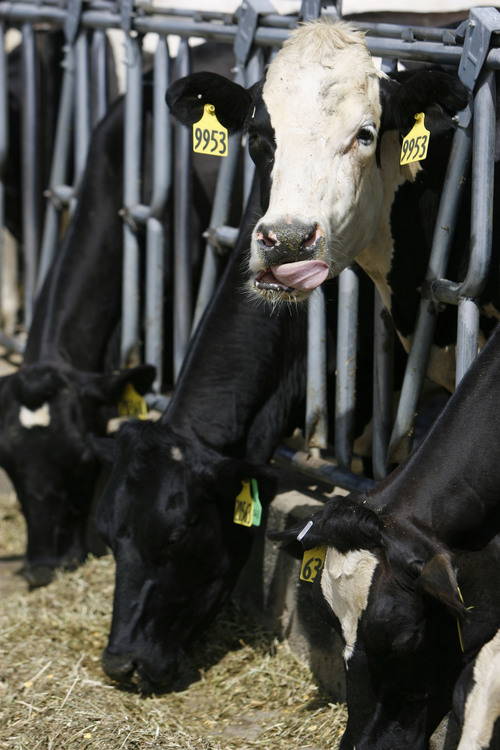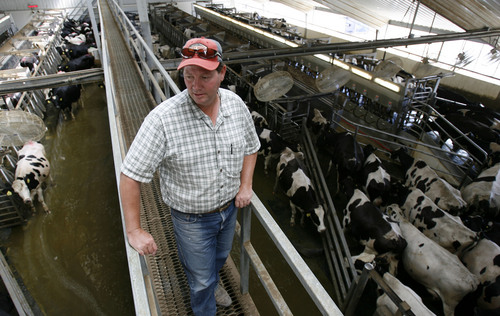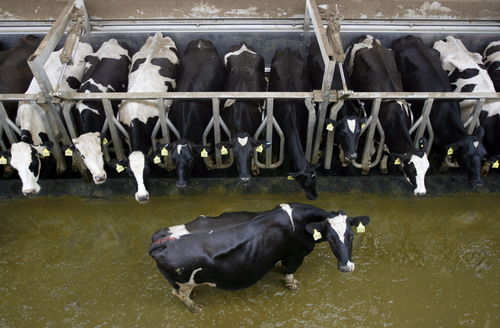This is an archived article that was published on sltrib.com in 2014, and information in the article may be outdated. It is provided only for personal research purposes and may not be reprinted.
Should Utah agricultural producers be protected from environmental regulators and lawsuits?
Sen. Ralph Okerlund, R-Monroe, thinks such a shield is necessary for farmers, ranchers, dairies and other food producers who participate in a new state program to promote voluntary "environmental stewardship" on agricultural lands.
His bill, SB73, would ensure, among other things, that participants get credit should they run afoul of water-quality rules or their neighbors in the event of a stormwater discharge or other mishap that results in environmental harm.
"This is a tool that will allow us to move forward in a responsible way," Okerlund told the Senate Natural Resources, Agriculture and Environment Committee on Wednesday. It would help family farms plan for the future, he said.
The senator was referring to the new Agriculture Certificate of Environmental Stewardship program, administered by the Utah Conservation Commission, a division of the Agriculture Department. This certificate is like a good-housekeeping seal of approval that can be offered as proof the holder is implementing "best management practices" to protect the land and water.
But according to the Utah Farm Bureau and others, producers want certainty that their environmental investments are sufficient to keep regulators at bay.
SB73 is aimed at providing that certainty and protecting producers' private information, but even then it will be hard to persuade farmers to sign up because it invites government oversight of their operations, said Farm Bureau lobbyist Sterling Brown.
The bill, which advanced out of committee, would bar the Division of Water Quality from tightening discharge standards on certificate holders during the life of the certificate and would require the division to consider the certificate as a "mitigating factor for any penalty purposes."
It also would establish a board for awarding loans and grants from the state's Agriculture Resource Development Fund.
Okerlund struck an original provision that would have required the Utah attorney general to defend certificate holders should federal regulators cite them for environmental violations.
To illustrate the need for the measure, Brown described a Utah County dairy operator who installed a wastewater lagoon at the behest of federal regulators even though the dairy is processing its manure. The concrete lagoon sits unused, except as a parking area for idle farm equipment.
To be eligible for the new stewardship certificate, according to the Utah Conservation Commission, farmers must evaluate their on-farm risks and file workbooks that detail various aspects of their operations, such as animal health, pesticide handling, fertilizer use, carcass disposal, crop and grazing rotation and weed control.
Nearly all records the agriculture department generates to demonstrate a farm's compliance would be protected from public disclosure under Okerlund's bill.







